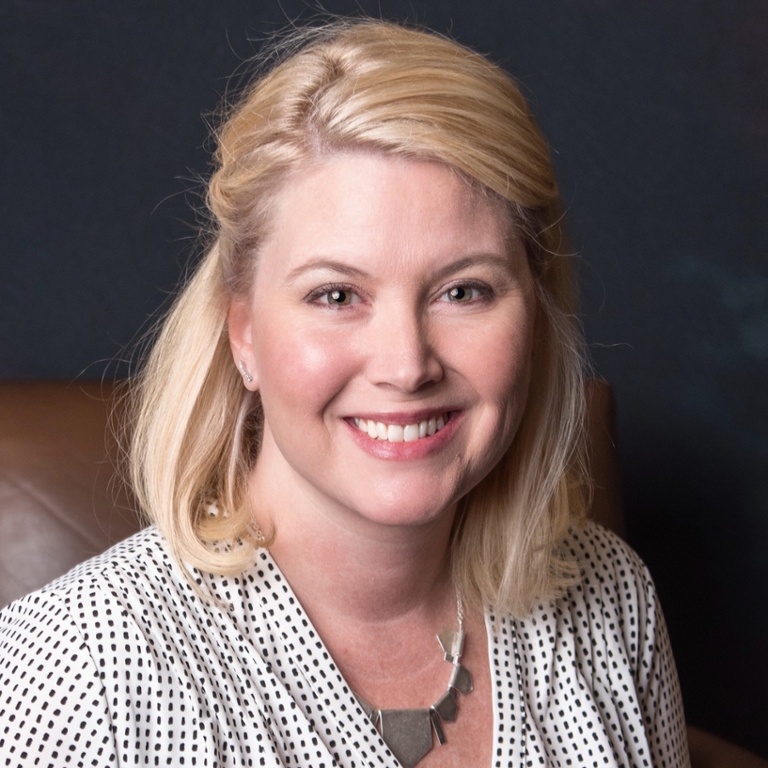Dr. Rodak received her M.A. in English from the University of Georgia. She came to IU in 2005 to pursue a Ph.D. in the Romantic Novel and, over the course of her time as a student, developed an interest in rhetoric. Her dissertation, which she describes as “a rhetorical project located in a literary period and interested in a literary phenomenon,” focused on the early rise of the publishing industry. This focus fostered an engagement with mediation and digital pedagogy that influences her teaching today. In her classes, Dr. Rodak frequently pushes her students to contemplate how technology relates to the future of the book and digital publishing.
Dr. Rodak quips that she “was a rhetoric student but didn’t know it,” but it’s also fair to say that she was a teaching administrator and didn’t know it until she became Assistant Director of W131. In this role, Dr. Rodak discovered what she calls a “deep and abiding love” not just for teaching, “but for teaching teachers and for helping teachers reflect and ask, why are we doing what we’re doing?” This reflection is at the heart of her teaching and informs her curriculum design and administrative work.
In 2012, Dr. Rodak took her expertise in digital pedagogy and teaching administration to work as a lecturer and curriculum designer at the Kelley School of Business. At Kelley, she designed Compass, a three-course sequence to guide business students through a critical thinking process. The Compass curriculum prompts students to reflect on why they want to pursue a business major. Dr. Rodak taught a number of classes in addition to working in Compass, including Professional Writing, and she was actively involved in LAMP, the Liberal Arts Management Program.
Today, Dr. Rodak’s scholarship focuses on active learning pedagogy and the science of learning. In 2018, she received the Active Learning Grant from the Center for Innovative Teaching and Learning, which she used to create a series of active learning clinics to teach revision skills. Her long-term goal is to publish an open access active learning guide for these and other skills. Her dedication to active, innovative, and effective teaching goes beyond her digital work into the physical classroom. In 2018, Dr. Rodak won the FACET Annual Innovate Award, which recognizes passion and creativity in the classroom, and in 2019, she received the Indiana University Trustees Teaching Award. To explain her teaching philosophy, she speaks of her overarching desire to empower her students to think intentionally. She talks about “The Matrix moment,” when a student realizes that “everything around you is choices, or a series of choices, and you have power within that template.” In addition to teaching students that they can and are empowered to choose for themselves, she encourages them to ask whether they are being intentional about these choices. Her pedagogy is as much about educating mindful citizens as it is teaching students to read, write, and think. This mindfulness reaches beyond Dr. Rodak’s classroom: attention to the power of choice shapes her administrative work, too. She strongly believes that we as teachers must be intentional about our choices—at the microlevel, in the classroom, and at the macrolevel, in higher education as a whole. This means that she is constantly reflecting and encouraging other teachers to reflect on how their class can serve students beyond a sixteen-week semester.
The Director of Undergraduate Teaching position brings together her scholarly interests, teaching experience, and skills in administration. Dr. Smith expressed enthusiasm and gratitude for Dr. Rodak, noting that the English Department is incredibly lucky for this new hire: “Miranda is a ball of energy; she is eager to make a contribution; she believes in what we’re doing; and she’s eager to promote the Department.”
Given Dr. Rodak’s ability to bring composition, literature, business, teaching, and administration together, each one of us has something to learn from our newest faculty member. We are excited to see where she leads us, and to see if Dr. Smith’s prediction will come true: “Miranda is going to be gangbusters.” Welcome to IU English, Dr. Rodak!
Editor’s note: The original version of this article contained significant discrepancies in the language used to refer to Dr. McMullen and to Dr. Rodak, and to their respective expertise and accomplishments. We deeply regret the oversight, we are grateful to the alumna who brought it to the department’s attention, and we and the department will work harder to avoid such lapses in the future. – Monique Morgan and Michael Adams


 The College of Arts
The College of Arts